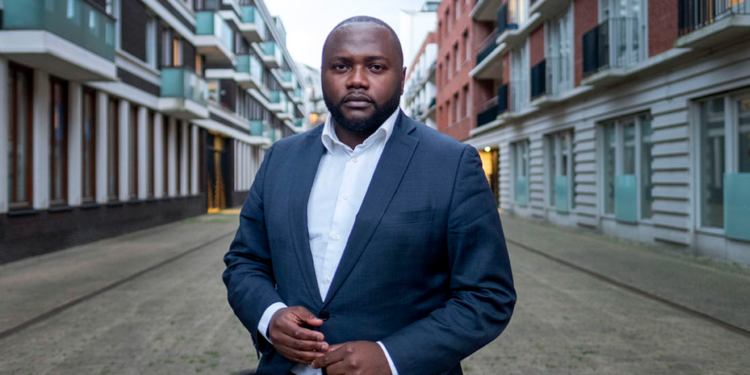Ethnic profiling, the practice whereby people are singled out for extra strict controls because of the colour of their skin, for example at airports, must cease, the Court of Appeal in The Hague has said.
The practice is a form of racial discrimination that is in violation of international law, the court ruled on Tuesday, February 14, 2023.
Ethnic profiling is well known to Africans who travel to The Netherlands because of their work in connection with the International Criminal Court (ICC). A Kenyan journalist who has travelled to The Hague multiple times complained that he is always the “random passenger” the Royal Dutch Military Police, also known by the acronym KMar, picks out of the queue at Schiphol, the airport at the capital, Amsterdam.
Other African journalists who came to The Hague as guests of Journalists For Justice (JFJ) for study and reporting trips have similar complaints. And a friend of Fatou Bensouda’s, the Gambian jurist who was chief prosecutor of the ICC from 2012 until 2021, told JFJ informally that she also had to sometimes undergo stricter controls at Schiphol airport because of her “outer appearance”, in spite of her diplomatic ID.
The court case started after an incident involving Mpanzu Bamenga, a Dutch politician of Congolese origin, in 2018.
When he arrived at Eindhoven airport, he was picked out of the queue by KMar for closer control. He noted that the same happened to other people who all had darker skin, while white people could pass unimpeded.
You Might Also Like: Ethiopia under pressure to act on human rights abuses
Bamenga filed a complaint with KMar, whose response was that the operational rules were intended to prevent “criminals and terrorists” from entering the country, Dutch daily, AD, reports. The working method was also meant to combat illegal immigration.
The politician shared his complaint on social media and received hundreds of reactions. His party, the social liberal Democrats 66 (D66), asked questions in parliament. Bamenga, who came to The Netherlands with his parents as an eight-year-old boy, and, like many other refugees, has since acquired Dutch citizenship, says: “What I remember well is that the Dutch military police said that we must differentiate between who is Dutch and who isn’t. Can you tell me what a Dutch person looks like? These instructions are worth nothing. It would be different if they controlled everybody. Now everybody can walk freely, except non-white people.”
He lost his case before a lower court, with the judge ruling that taking ethnicity into account as a “risk factor” at the border does not constitute discrimination because “ethnic features don’t have to be, but can be an objective indication of somebody’s origin or nationality”.
Amnesty International and other human rights organisations supported Bamenga’s appeal. The court ruled that distinction based upon race without good reason is a severe form of discrimination that leads to “stigma and painful feelings”, has a disruptive effect on society, and gives non-white people the feeling that they are second-class citizens.
“If the colour of Bamenga’s skin had been different, he would not have been controlled,” the judges said, according to the Dutch daily, de Volkskrant.
The Netherlands is a former colonial power that for centuries engaged in the slave trade. Many non-white people from the former colonies live here as nationals of this country, as is the case in the UK and France. For this reason, critics of the controversial practice argue, that skin colour cannot be used as an indicator of citizenship.
Bamenga’s supporters who had come to the court in The Hague reacted joyfully; others had tears in their eyes when the judgement was read out, AD reports. One man in the public gallery stepped forward at the end of the session and told the judges: “You have written history.”
The Royal Dutch Military Police has declared that it has abandoned the now illegal practice. Bamenga told Dutch national radio that he will “wait and see”.
Racial discrimination is condemned by many moral systems and international treaties. The Rome Statute of the ICC names apartheid, a policy of systemic oppression based upon race, as a crime against humanity. Apartheid, instituted by settlers of Dutch origin in South Africa, is sometimes described as “the Dutch word best known internationally”. As the host state of the ICC, The Netherlands is expected to be a role model as far as the elimination of all forms of racial discrimination is concerned.
Rabin Baldewsingh, a former socialist deputy mayor of The Hague and now the Dutch National Coordinator against Discrimination and Racism, told news site, nu.nl, that he is glad about the clear judgement of the appeals court. “This judgement is a giant step, not only denouncing systemic racism, but also prohibiting it.”







